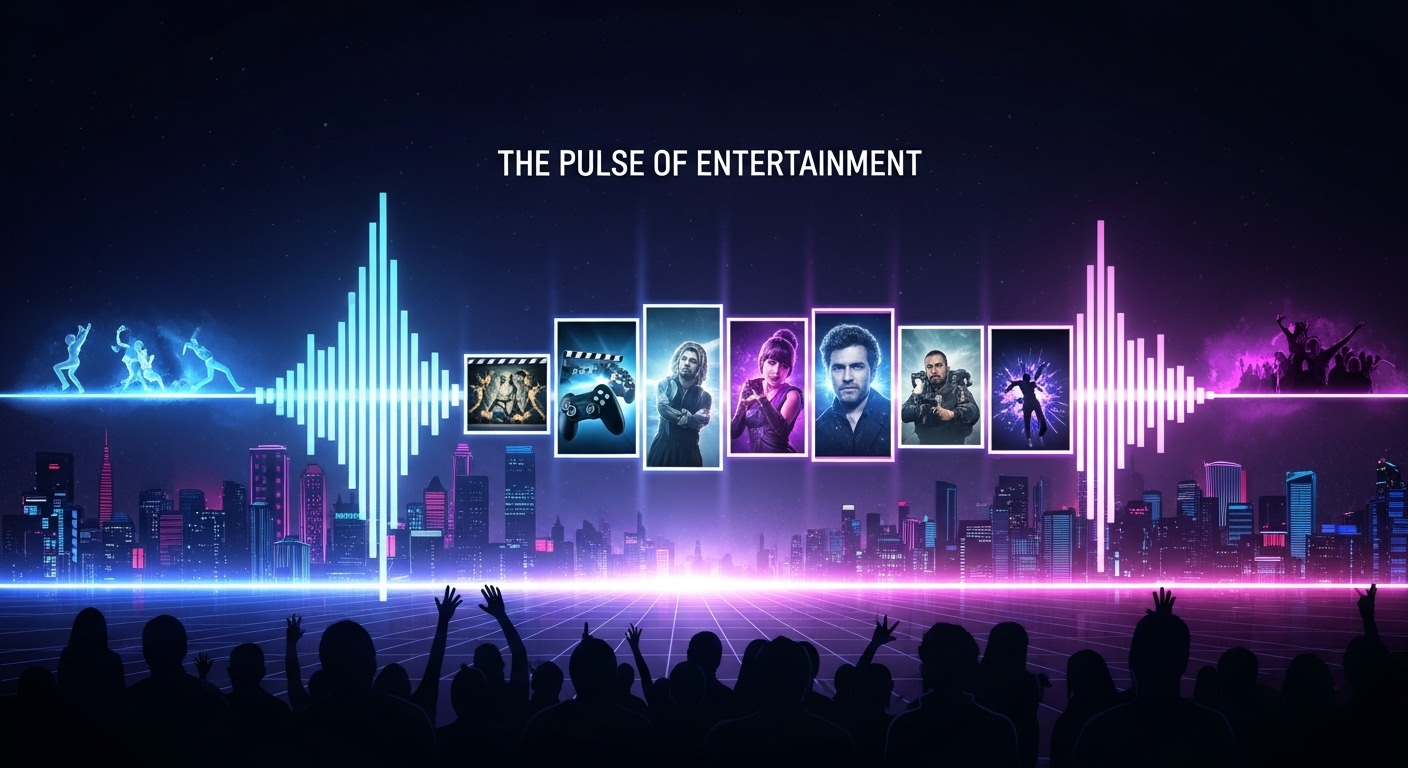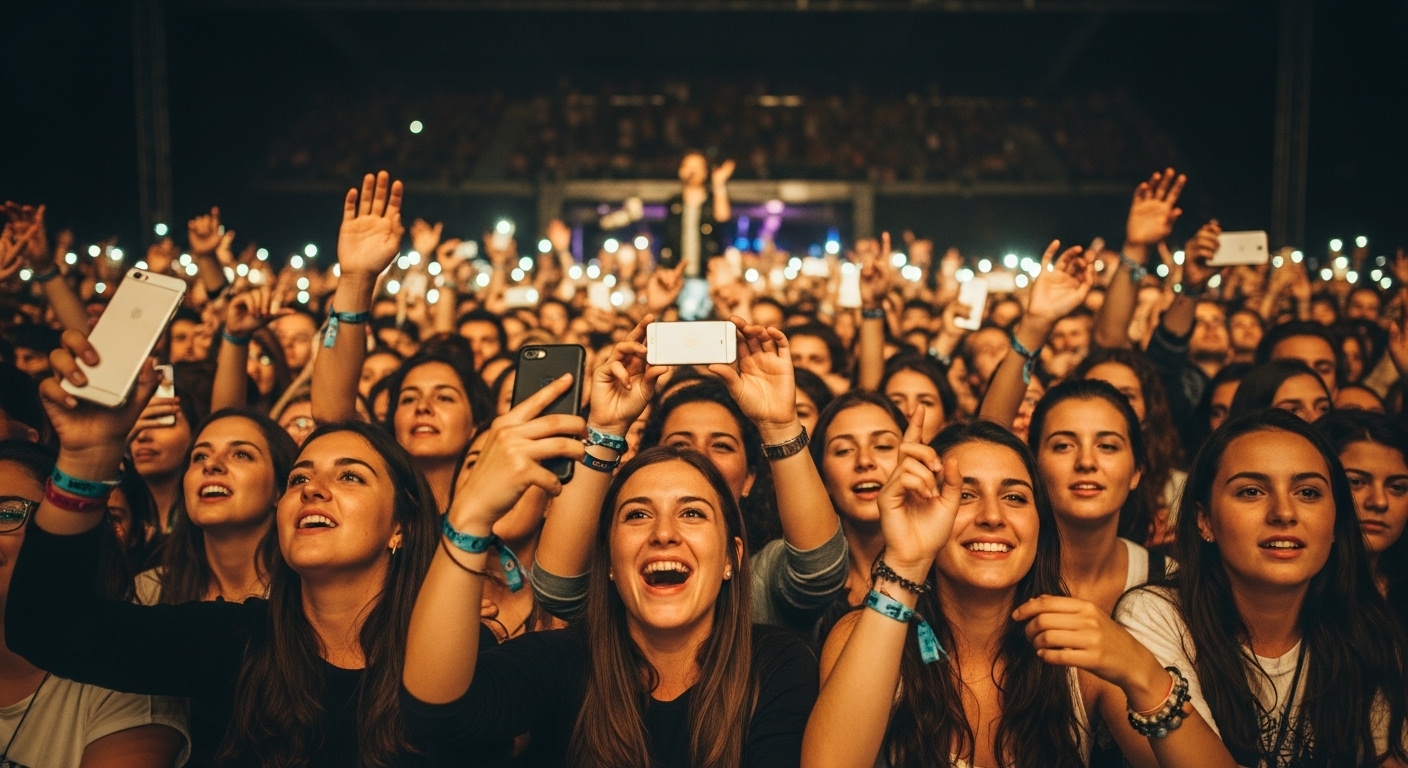Introduction: A Shift in How We Consume Entertainment
Entertainment has always been a central part of human culture, evolving alongside technological advancements and societal changes. From ancient storytelling around a campfire to the rise of digital platforms offering on-demand content, the way we experience entertainment has undergone a seismic shift. In the past century alone, we’ve seen the emergence of radio, television, cinema, and now the ever-growing world of online streaming, gaming, and virtual reality.
This blog will explore the evolution of entertainment, tracing its development through key historical moments, technological innovations, and cultural shifts that have shaped how we consume and experience entertainment today. We will also look at how emerging trends are likely to shape the future of entertainment, making it even more immersive, interactive, and globally accessible.
The Dawn of Entertainment: Oral Tradition and the Birth of Storytelling
Long before cinema, television, or even the written word, entertainment existed in the form of oral tradition. Storytelling, singing, dancing, and theater were the primary modes of entertainment for ancient cultures across the world. From the epic poems of Homer in Ancient Greece to the folk tales passed down through generations in Indigenous cultures, oral storytelling was the cornerstone of human entertainment. These performances were a way to pass down knowledge, history, and values while also offering enjoyment.
In Ancient Greece, theater became a highly developed art form, with playwrights like Sophocles and Euripides shaping the world of drama. Theaters, such as the famous Theatre of Dionysus in Athens, attracted thousands of spectators. This era also marked the introduction of dramatic competitions, where actors, musicians, and playwrights competed for prestige and recognition.
As society progressed, entertainment became more sophisticated. The invention of written language allowed for the recording of stories and the creation of books, plays, and poetry. These innovations set the stage for the development of modern forms of entertainment that would eventually reach mass audiences.
The Age of Radio: The First Mass Media
The 20th century witnessed the rise of new technologies that would revolutionize the entertainment landscape. One of the first and most impactful of these was the invention of radio. In the early 1900s, radio broadcasts brought entertainment directly into people’s homes for the first time. What was once a privilege reserved for those who could afford tickets to live performances or cinema screenings became accessible to everyone, regardless of location or financial status.
Radio became a powerful medium for storytelling, music, news, and advertising. In the 1920s and 1930s, radio programs such as The Shadow, The Lone Ranger, and War of the Worlds captivated audiences across the United States. Families would gather around their radios each evening to hear their favorite shows, creating a shared experience that bonded listeners.
The impact of radio on entertainment culture cannot be overstated. It helped establish the concept of “broadcasting” to a mass audience, laying the groundwork for future forms of media, including television. More importantly, radio democratized entertainment, allowing it to reach the farthest corners of the globe, even to rural areas where live performances and movies were unavailable.
Television: The Golden Age of Entertainment
By the mid-20th century, television emerged as the new centerpiece of home entertainment. With its combination of moving images and sound, television offered a richer, more immersive experience than radio. The 1950s and 1960s are often considered the “Golden Age of Television,” as TV shows, movies, and news programs began to shape public opinion and culture on an unprecedented scale.
Television allowed viewers to watch live events, dramas, sitcoms, and news broadcasts from the comfort of their living rooms. Shows like I Love Lucy, The Ed Sullivan Show, and The Twilight Zone became cultural landmarks, attracting millions of viewers each week. News programs such as CBS Evening News and 60 Minutes brought important social, political, and cultural issues into homes across the country, shaping public discourse.
In addition to entertainment, television also began to play a significant role in advertising, with companies like Procter & Gamble and Coca-Cola sponsoring popular shows to promote their products. This created the advertising-driven model of television, where programming was largely funded by commercial sponsors.
The rise of cable television in the 1980s and 1990s expanded the landscape even further, with networks like HBO, CNN, and MTV carving out unique niches and offering specialized content. The advent of remote controls, VCRs, and DVRs allowed viewers to watch television on their own terms, giving rise to the concept of “appointment viewing” and the eventual shift to on-demand content.
The Internet Era: A New Age of On-Demand Entertainment
The arrival of the internet in the late 20th century completely transformed entertainment once again. Suddenly, entertainment wasn’t confined to TV schedules, theaters, or radio stations. The internet opened up a world of possibilities, allowing people to access content at any time, from virtually anywhere.
In the early days of the internet, entertainment was mostly text-based—forums, blogs, and early online video-sharing platforms like YouTube became hubs for entertainment and self-expression. As internet speeds increased and bandwidth became more accessible, the internet allowed for more sophisticated forms of entertainment, including high-quality video streaming, online gaming, and virtual worlds.
The launch of platforms like Netflix, Spotify, and YouTube revolutionized the way people consumed media. No longer did viewers have to wait for specific broadcast times or deal with limitations of cable TV subscriptions. Now, they could access entire libraries of movies, TV shows, and music on-demand, all from the comfort of their devices.
YouTube, in particular, opened up a whole new form of entertainment: user-generated content. It wasn’t just about watching professional productions anymore—regular people were creating content that went viral, changing the dynamics of entertainment. In the early 2000s, YouTube stars like PewDiePie and Jenna Marbles began to attract millions of followers, making a career out of entertaining others through vlogs, comedy sketches, and video game playthroughs.
Meanwhile, Netflix disrupted the television and film industry by transitioning from a DVD rental service to a streaming giant. It began producing its own original content, such as House of Cards and Orange is the New Black, which quickly became critical and cultural successes. Other platforms, like Amazon Prime Video and Hulu, followed suit, and streaming became the dominant way people consumed television and film.
The Rise of Online Gaming: Entertainment in the Digital Age
Alongside the rise of digital streaming, online gaming has become one of the most lucrative and immersive forms of entertainment in the 21st century. Gaming has moved far beyond its humble beginnings as a niche hobby to become a massive industry. In 2020, the global gaming market was valued at over $159 billion, and it continues to grow.
The rise of online multiplayer games such as World of Warcraft, League of Legends, and Fortnite has revolutionized the way people interact with entertainment. Players are no longer just passive consumers of content—they are active participants in the creation and evolution of their entertainment experiences. Online gaming has turned into a social activity, where players communicate, collaborate, and compete with others across the globe.
Esports, or competitive video gaming, has also exploded in popularity, with tournaments offering millions of dollars in prize money and attracting huge live audiences both in person and online. The world of esports has become a professional avenue for skilled gamers, with sponsorships, advertising, and media rights helping to make it one of the most lucrative sectors of the entertainment industry.
Games like Minecraft and Roblox have even blurred the lines between gaming and entertainment, allowing users to create their own virtual worlds, share them with others, and build entire communities around them. The concept of the “Metaverse”—a digital universe where users can socialize, play, and create—is quickly becoming a key area of focus for developers and tech giants like Facebook (now Meta).
Virtual Reality and Augmented Reality: The Next Frontier
The next phase of entertainment may lie in immersive experiences enabled by virtual reality (VR) and augmented reality (AR). VR, which allows users to enter and interact with a completely virtual environment, has been a hot topic in the gaming industry for several years. With VR headsets like the Oculus Rift and HTC Vive, players can now immerse themselves in digital worlds in ways that were previously impossible.
VR is also finding its way into other forms of entertainment. Virtual concerts, such as those held in Fortnite, are becoming increasingly popular, allowing fans to experience live music performances in a virtual setting. VR movies and 360-degree videos also allow for new kinds of cinematic storytelling, placing viewers inside the story rather than just observing from the outside.
Augmented reality, which overlays digital information onto the physical world, is also opening new doors for entertainment. Pokémon Go, the mobile game that became a global sensation in 2016, was one of the first successful AR-based games. AR has potential applications in everything from interactive storytelling and live sports broadcasts to educational experiences and themed attractions.
As both VR and AR technologies continue to improve, the line between physical and digital entertainment will continue to blur, offering new forms of entertainment that are more immersive and interactive than ever before.
Conclusion: The Future of Entertainment
The entertainment industry has come a long way from its humble beginnings in oral tradition and live performances. With every new technological advancement, the ways in which we consume and experience entertainment have evolved, becoming more diverse, accessible, and immersive. Today, we live in an age where entertainment is not just a passive experience but a dynamic, interactive process that allows us to participate, engage, and even create.
Looking forward, entertainment is likely to become even more personalized, immersive, and global. As emerging technologies like artificial intelligence, virtual reality, and the Metaverse continue to develop, the future of entertainment holds exciting possibilities. Whether through digital streaming, online gaming, or entirely new forms of media, entertainment will continue to be a powerful force in our lives, shaping culture, communities, and connections in ways we can only begin to imagine.
In the end, one thing is certain: entertainment will always be an integral part of what it means to be human. From the days of oral storytelling to the high-tech, on-demand experiences of today, the journey of entertainment continues to unfold, and we are all along for the ride.



